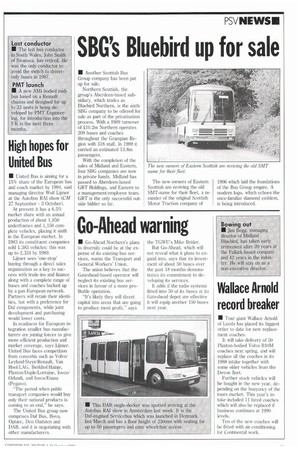High hopes for United Bus
Page 19

If you've noticed an error in this article please click here to report it so we can fix it.
• United Bus is aiming for a 15%. share of the European bus and coach market by 1994, said managing director Wolf Winer at the Autobus RAE show (CM 27 September 3 October).
At present it has a 6.5% market share with an annual production of about 1,850 underframes and 1,150 complete vehicles, placing it sixth in the European market. In 1983 its constituent companies sold 1,383 vehicles; this was up to 2,324 by 1989.
Lijmer sees 'one-stop' buying through a direct sales organisation as a key to success with trade-ins and finance along with a complete range of buses and coaches backed up by a pan-European network. Partners will retain their identities, but with a preference for Daf components, while joint development and purchasing would lower costs.
In readiness for European integration smaller bus manufacturers are joining forces to give more efficient production and market coverage, says Lijmer. United Bus faces competition from consortia such as Volvo/ Leyland/Steyr/Renault, Van Hool/LAG, Berkhof/Hainje, Plaxton/Duple/Lorraine, lveco/ Orlandi, and IvecolEnasa (Pegaso).
"The period when public transport companies would buy only their national products is coming to an end," he says.
The United Bus group now comprises Daf Bus, Bova, Optare, Den Oudsten and DAB, and it is negotiating with other manufacturers.




























































































































